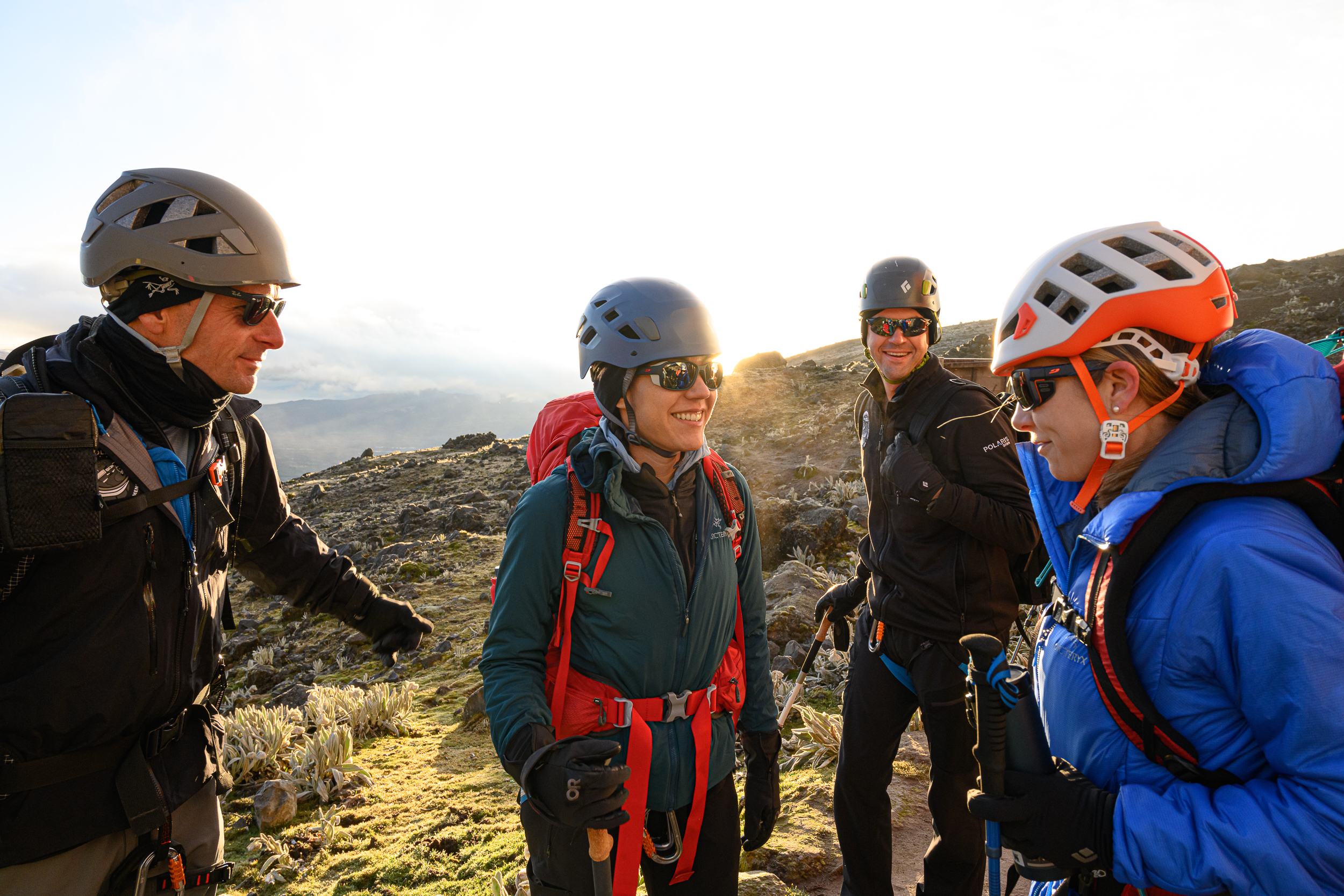
Polaris Dawn Crew Completes High-Altitude Mountaineering, Medical Training
The Polaris Dawn crew recently completed a high-altitude mountaineering expedition in Ecuador as well as medical training at McGovern Medical School at UTHealth Houston in Houston, Texas, as training continues ahead of their planned launch to orbit, currently targeted for no earlier than the fourth quarter of this year.
High-Altitude Mountaineering in Ecuador
Combining physical and mental endurance with team building skills in demanding situations is a valuable opportunity ahead of a mission with bold objectives, such as conducting the first commercial spacewalk and setting a new Earth orbit altitude record. According to mission commander Jared Isaacman, “Spending a week together in Ecuador climbing mountains — including high-altitude peaks like Cotopaxi — is such an important part of our training for Polaris Dawn and forges the kind of team bond and confidence necessary to undertake a challenging human spaceflight mission.”
Joined by Polaris Program team members, guides from RMI Expeditions, and local Ecuadorian experts, the crew began their trip with a series of high-elevation acclimation hikes, starting in Quito, Ecuador. Situated at 9,350ft (~2,850m) above mean sea level (AMSL), Quito can present difficulties in breathing due to the reduced oxygen compared to cities closer to sea level. Reaching Illinizas Refuge hut was the next day’s goal – a more challenging yet attainable hike that started at 12,800ft (~3900m) and took roughly three and a half hours to complete.
Once reaching the hut at 15,400ft (4,700m), the group spent the night to prepare for a sunrise departure to summit the Illinizas Norte volcano (16,818ft / 5,126m). This final acclimation climb allowed the team to practice more advanced mountaineering skills with ropes, helmets, and ice axes. Treated to beautiful early-morning views at the summit, the team then returned to 12,800ft (~3,900m) to depart for the Tambopaxi Lodge near the Cotopaxi stratovolcano.
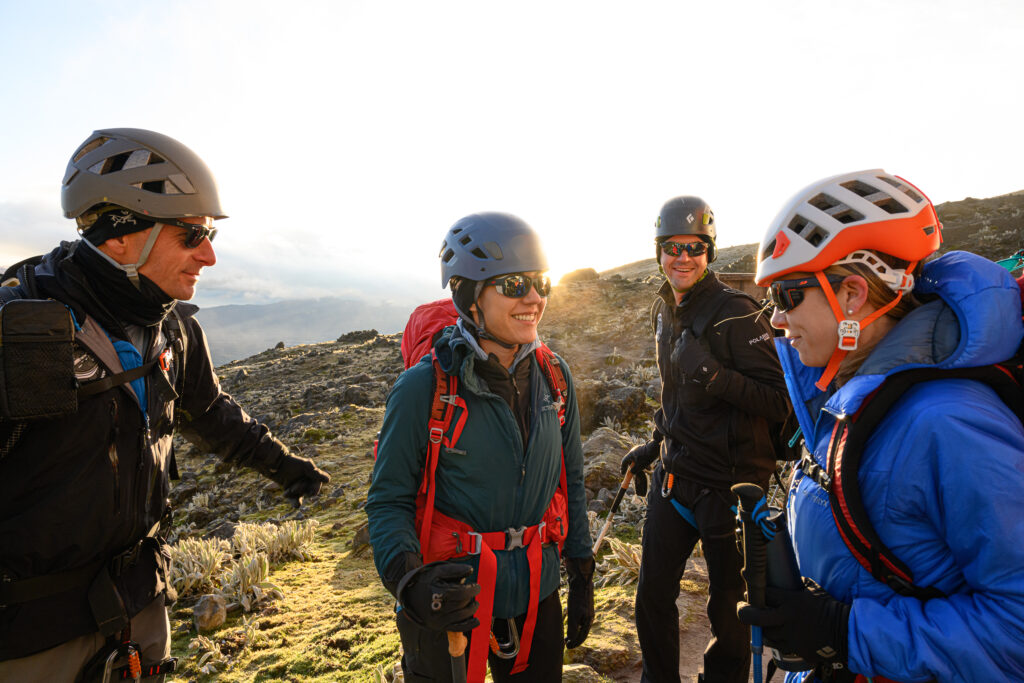
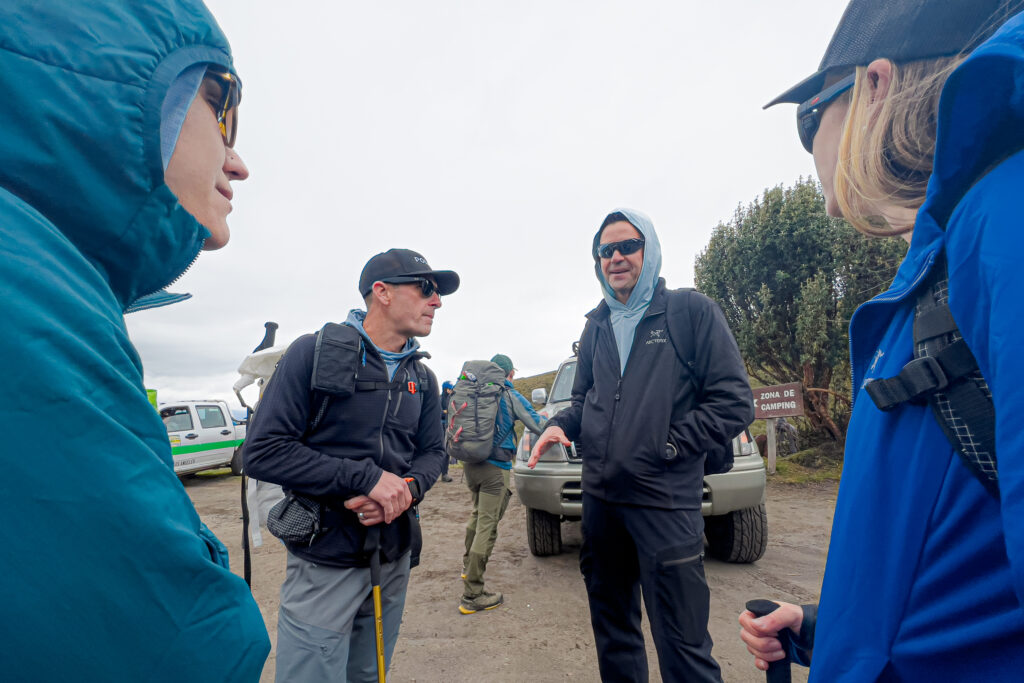
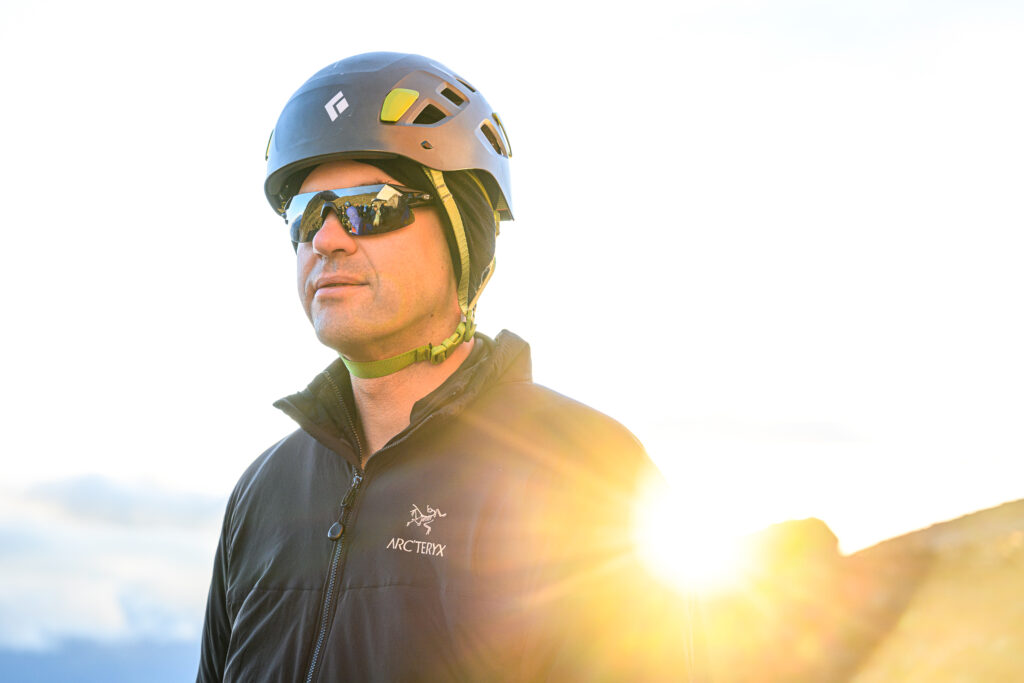
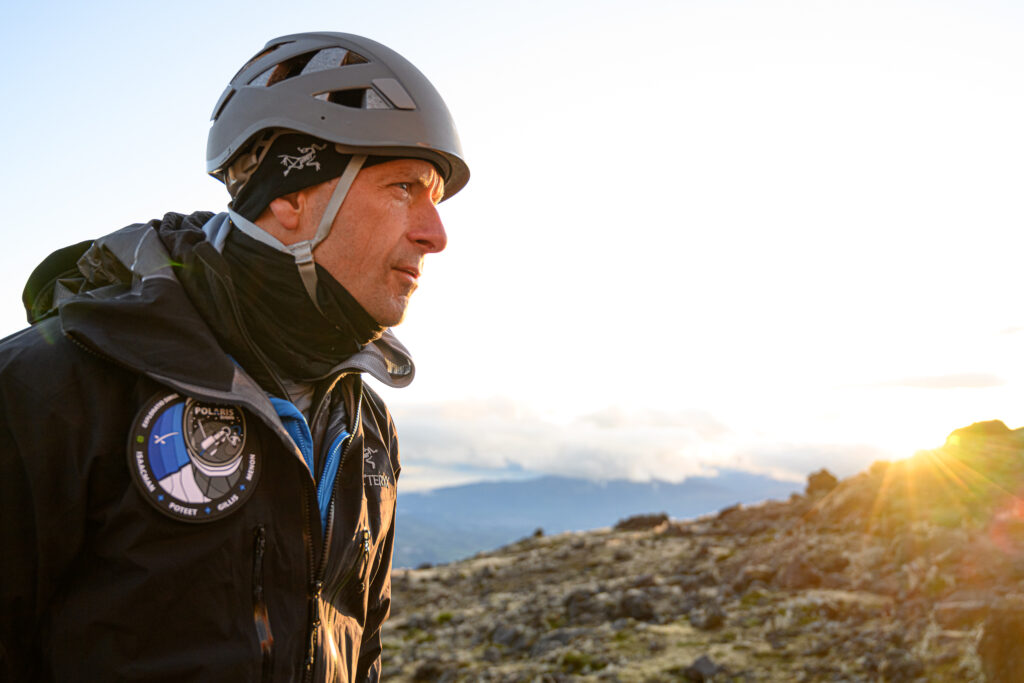
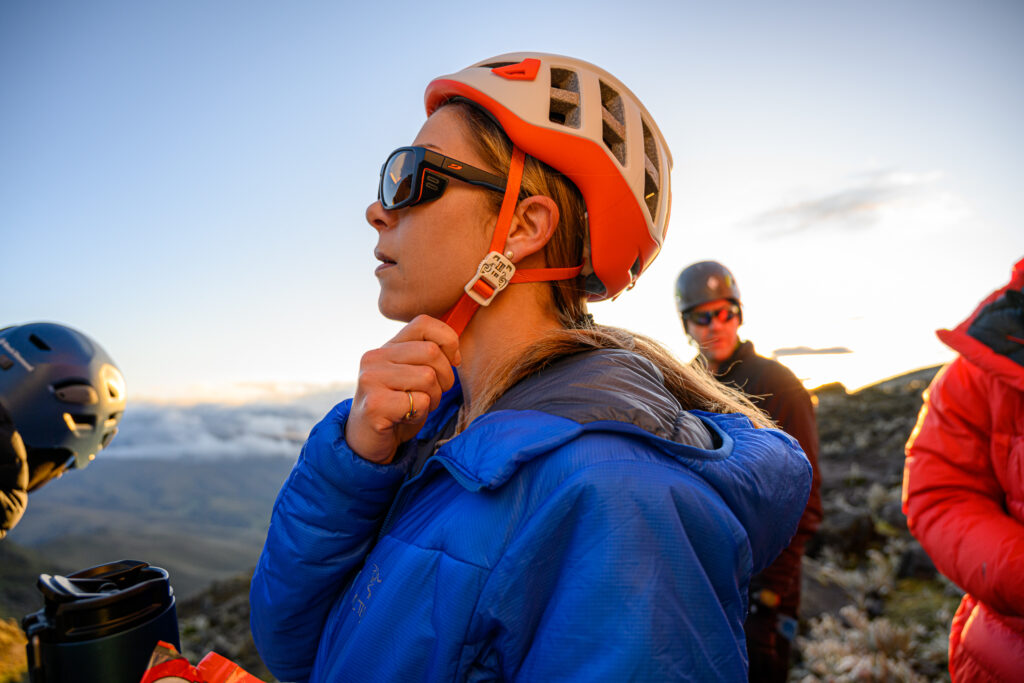
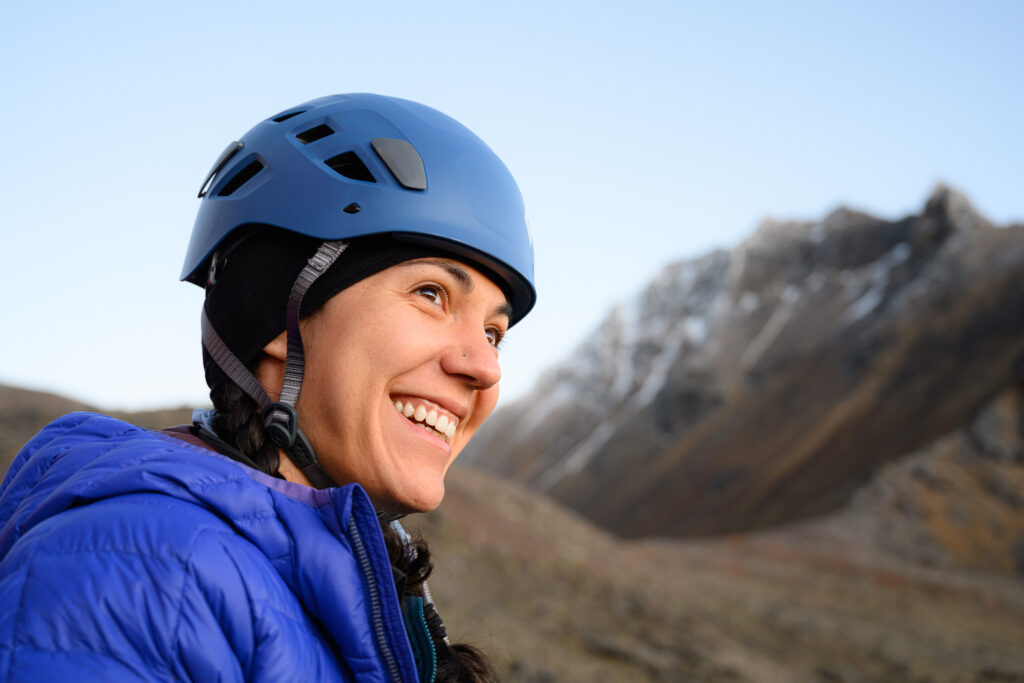
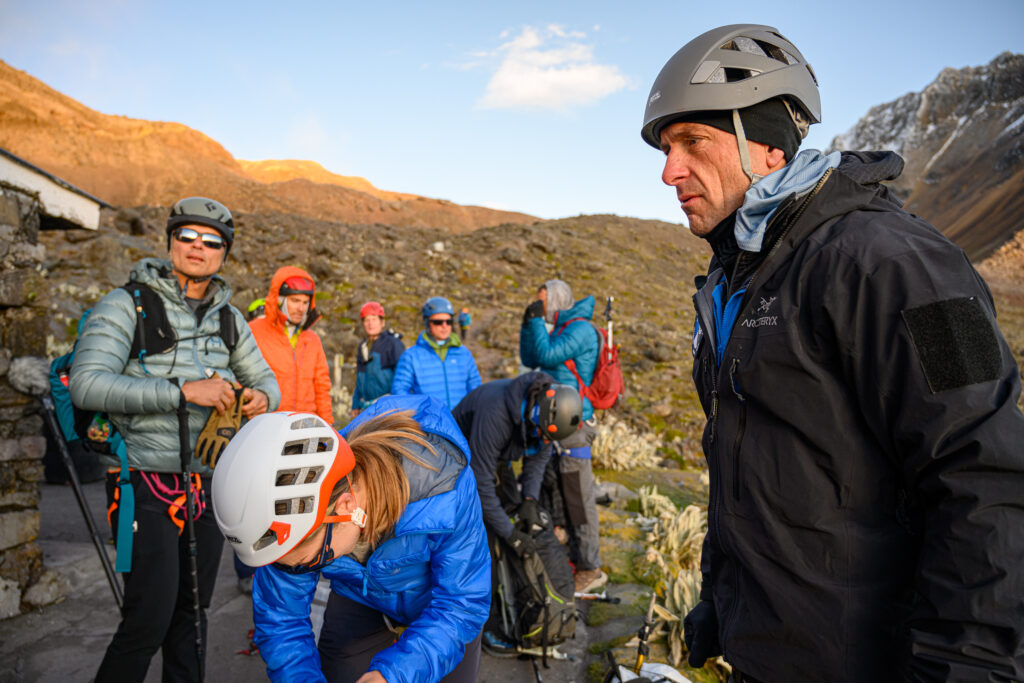
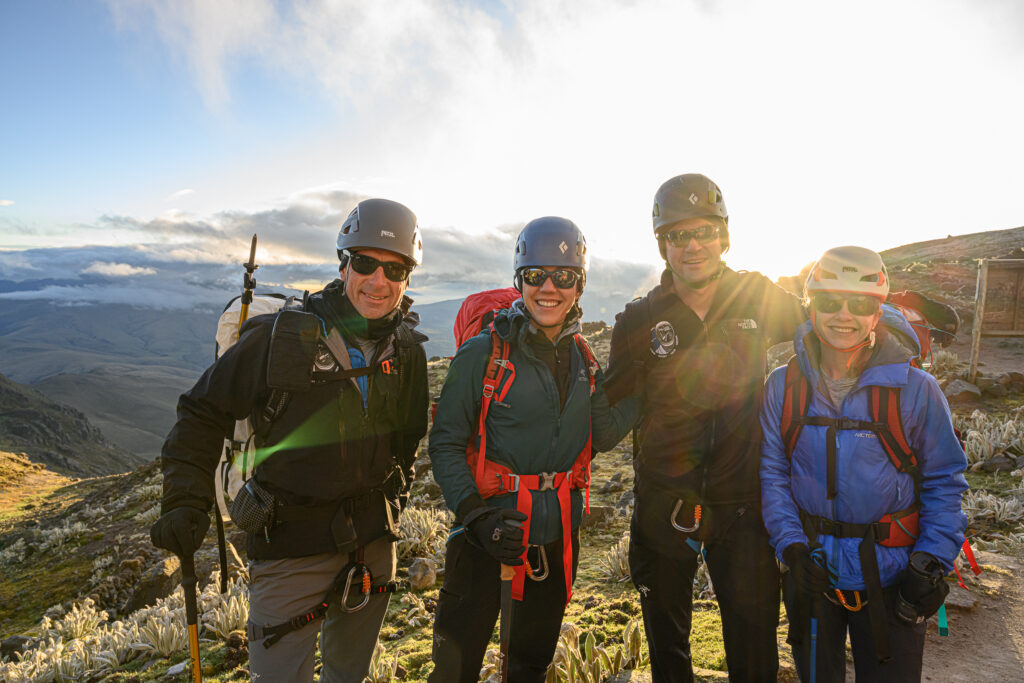
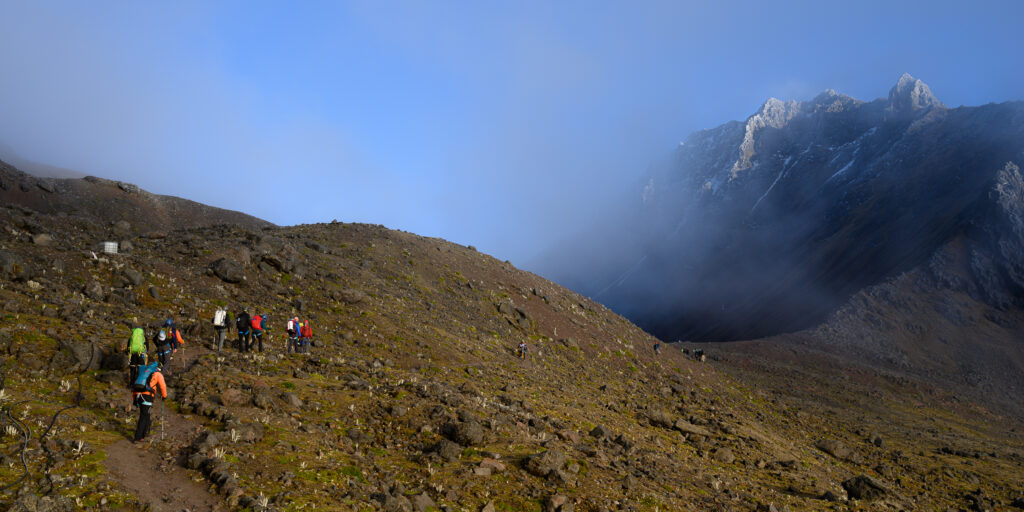
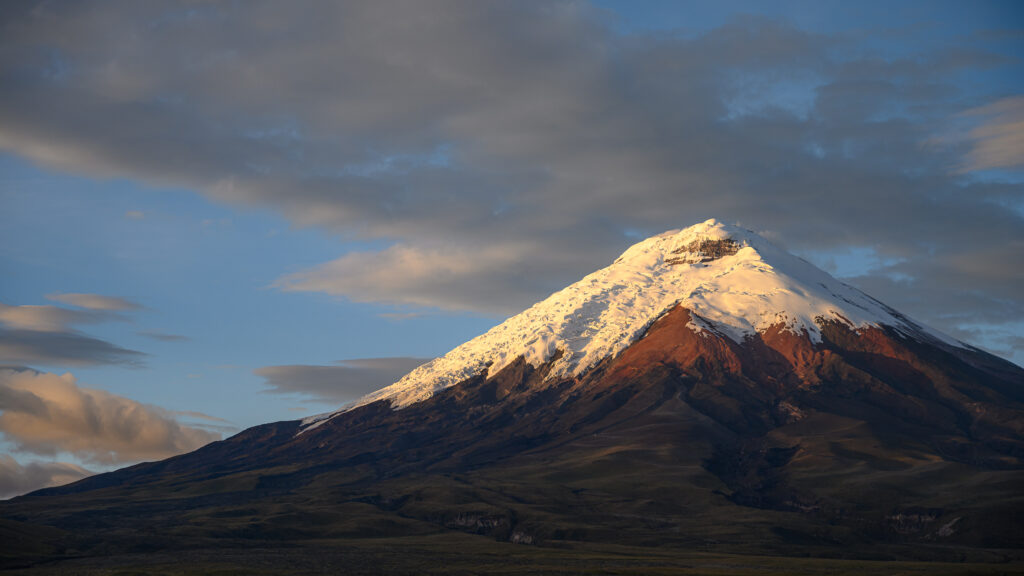
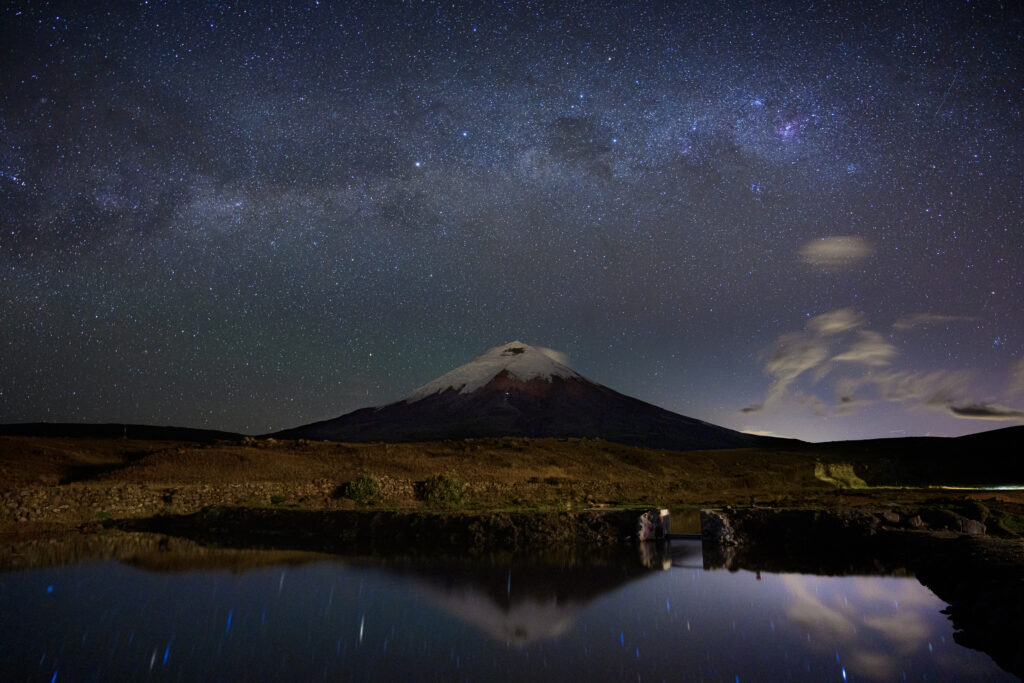
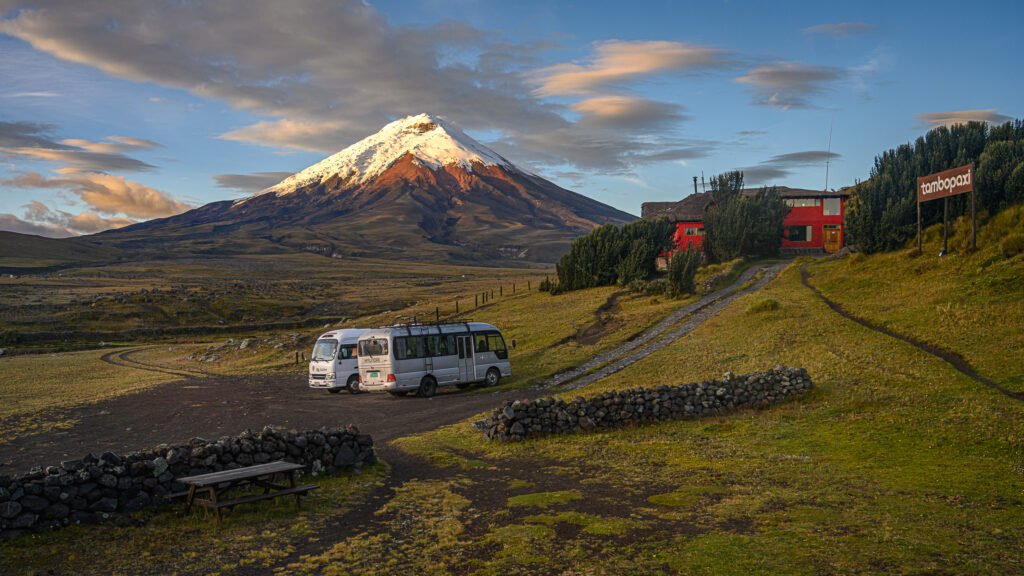
After a day of further high-altitude acclimatization and skills practice at the Tambopaxi Lodge, the group departed at midnight to begin climbing Cotopaxi. Shortly after sunrise, 13 climbers summited the mountain, taking in incredible sights of the vast Ecuadorian landscape.
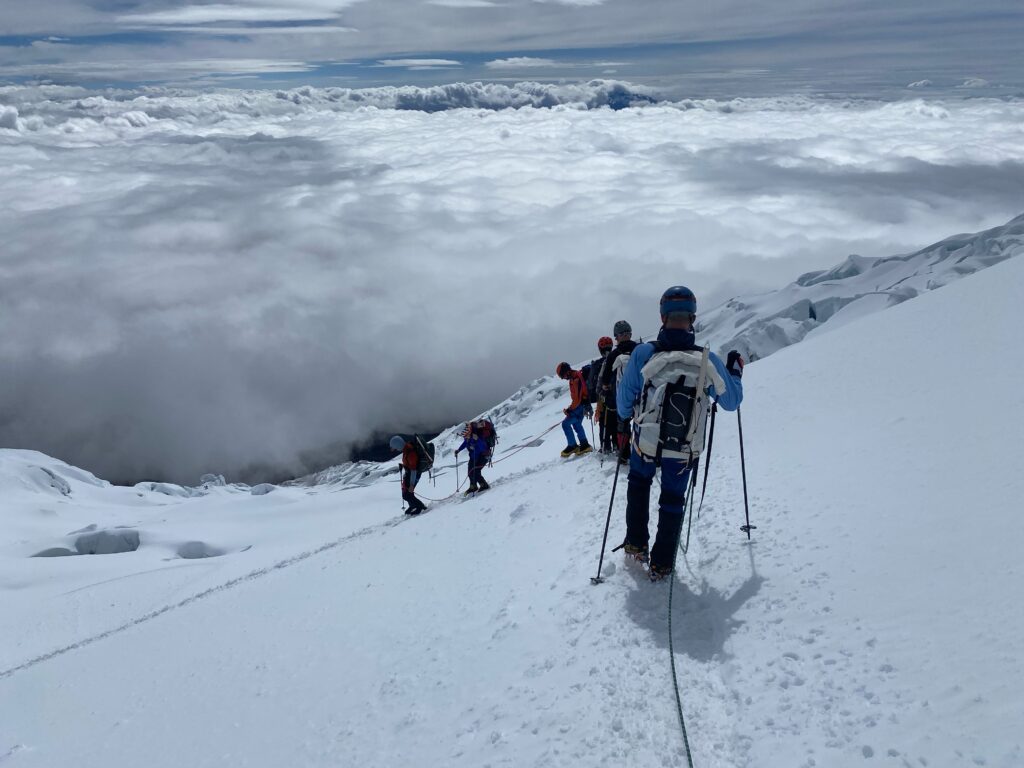
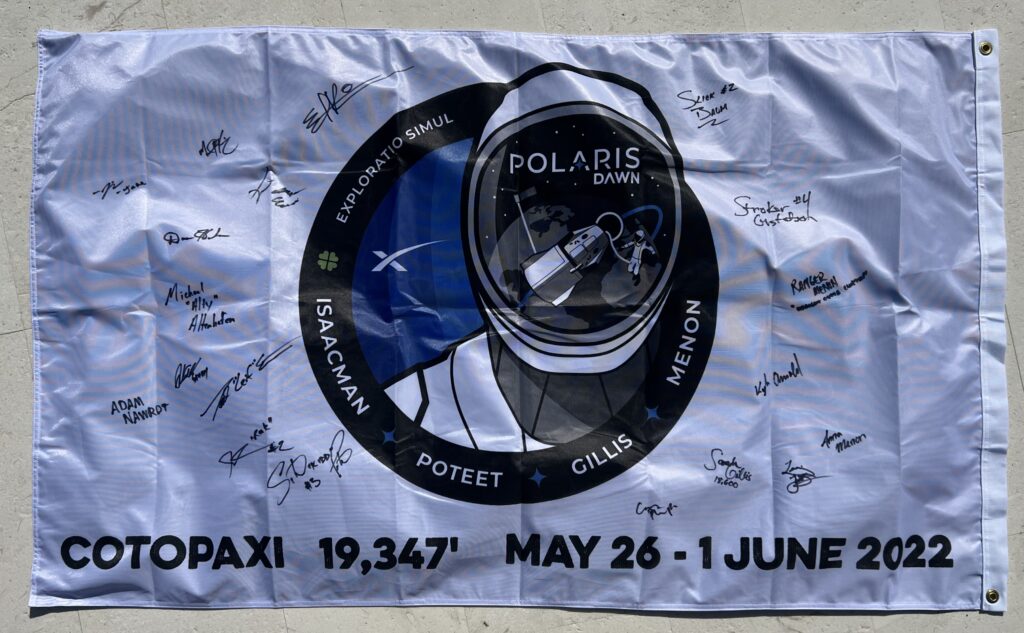
Photo 2 credit: Polaris Program / Stroker Gustafson)
“The experience was incredible,” said Anna Menon. “It challenged each of us physically and mentally, and when you go through that sort of experience with others, it has the effect of bonding you. We experienced both high and low moments together during this training, and in that, we learned so much more about each other, how to support each other best, and work effectively as a team.”
“Spending four days in Ecuador climbing volcanoes – including Cotopaxi at 19,374 feet – challenged all of us in the best ways possible, which ultimately helped us gel as a team as we prepare for our mission to space,” shared Kidd Poteet. “Climbing requires solid communication and awareness of how everyone is doing, and this trip let us continue to learn how we can best support and push one another to achieve our goals.”
RMI Expeditions guide Dave Hahn shared the following regarding the Polaris Dawn’s crew experience in Ecuador:
“It was so much fun to be in Ecuador with the Polaris Dawn team. Under normal circumstances, a 19,000ft mountain is a pretty good goal in itself, requiring laser focus and dedication to a singular task. With our gang though, there was always a little conversation — even in the toughest spots — about heat shields and space suits and thrusters. It was impossible to forget that our team had bigger goals, and that was exciting to be around. At one point on Cotopaxi, climbing a steep slope under starry skies, I realized we were walking straight toward Jupiter. With the Polaris Dawn folks … it seemed we might get there.”
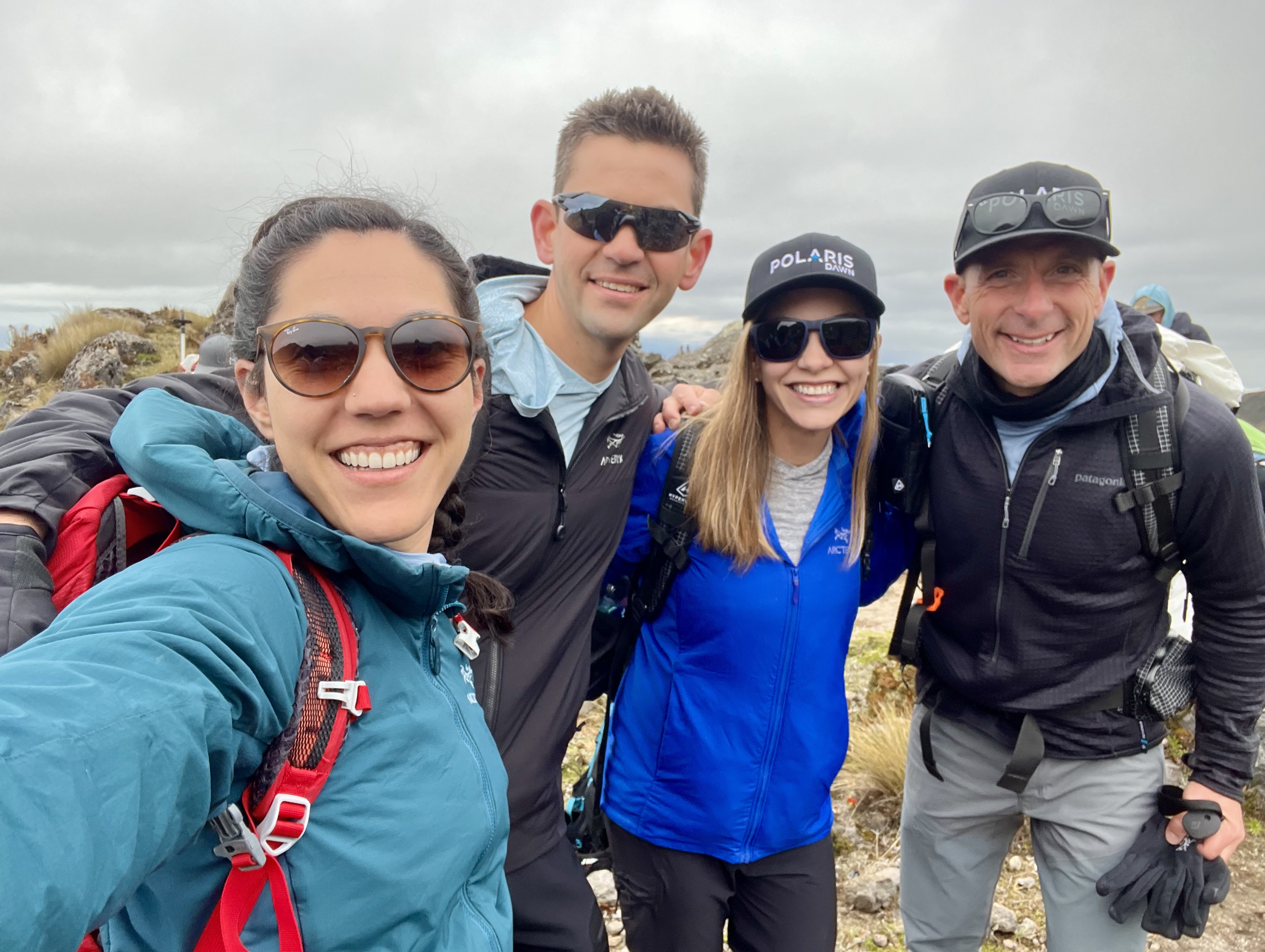
Medical Skills Training in Houston, Texas
In mid-June, Polaris Dawn’s medical officer Anna Menon and mission specialist Sarah Gillis completed a week of emergency medical skills training at McGovern Medical School at UTHealth Houston. This week of on-site training was designed to provide real-world exposure to the range of medical issues the crew may encounter on orbit and provide Anna and Sarah with an opportunity to learn how to manage those issues in real time under supervision from experienced medical professionals.
Their training focused on initial and focused assessments, collection of vital signs, triage, physical exam skills, basic life support and airway management, and other procedural medical skills encompassing a wide array of potential concerns they may need to attend to in space.
“Flight surgeons in mission control can provide medical support to the crew, but in order to work effectively together, our crew needs to know how to perform initial medical assessments and efficiently communicate with the ground team,” said Anna Menon.
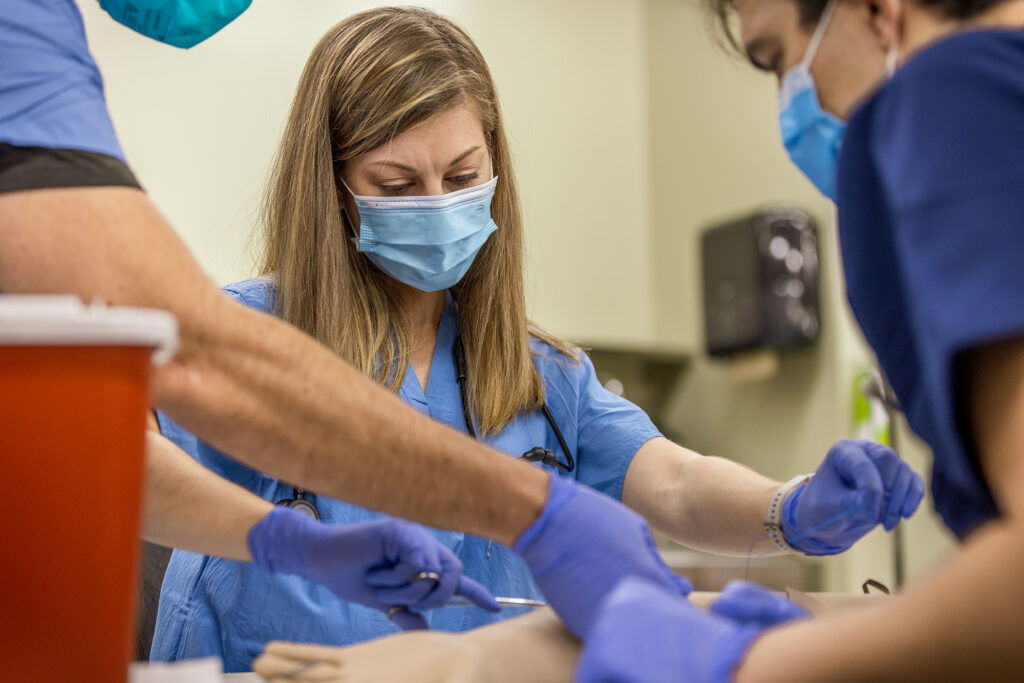
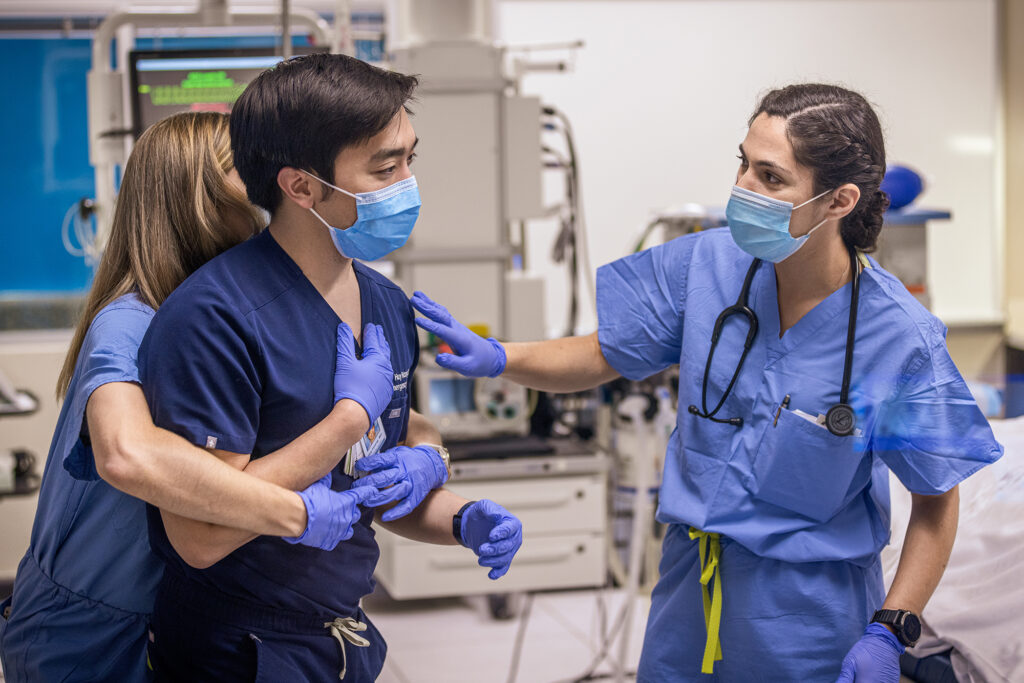
“The UTHealth Houston program provided a real-world hands-on experience that is instrumental in transforming the required knowledge from theory to practice and cementing our training,” said Sarah Gillis.
With a history of training astronauts on a wide variety of medical skills and its affilation with one of the busiest level 1 trauma centers in the United States at Memorial Hermann-Texas Medical Center, McGovern Medical School was the ideal location for our crewmembers’ medical training.
The medical school’s space medicine training program has been in place since 1997 and has had over 75 participants, with 29 medical training sessions conducted for astronauts since its founding.
Stay tuned for more updates as the crew continues training ahead of the launch of Polaris Dawn!